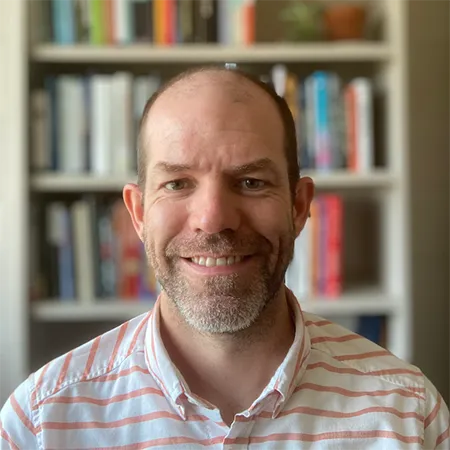Uneven racial development in the United States has led to the persistence of significant inequalities across Black and White populations for decades. White households earned 61% more income than Black households in 2014, for example, but more importantly White people’s median net worth was 13 times that of Black people’s in 2014. Moreover, while the high school educational gap between Black and White people has closed significantly since the 1960s, the racial gap between those receiving a college degree has increased from 6% to 13%. Such racial inequality signifies both the legacy of racial discrimination from slavery and Jim Crow era legislation of separate but equal, but perhaps more nefariously these inequalities highlight the ongoing perpetuation of racial hegemony through colorblind racism. The persistence of racial inequality increases the potential for harm to Black populations, especially under a changing climate. In this talk, I will present preliminary results from a project that synthesizes social and environmental data from coastal Georgia, specifically Sapelo Island, with attention to the dynamics of race and racism as well as flood risk under rising seas. I show how the current potential for harm from flooding for African American families is shaped by historical racial inequality and land use decisions. I argue that future risk to flooding-while shaped by historical socio-environmental processes that “set the stage”-will be driven by contemporary land struggles and rising seas.
Presenters
Dean Hardy
Dr. Dean Hardy’s training and education span from marine sciences to human geography. As a geographer trained to work across ways of knowing socio-environmental challenges, he investigates landscapes as socio-natural, drawing on environmental justice studies, political ecology, hazards geography, and critical race theory. A graduate of the University of Georgia’s Integrative Conservation and Geography PhD Program, Dean is currently an Assistant Professor at the University of South Carolina in Columbia jointly appointed in the School of the Earth, Ocean, and Environment, as well as the...
Dean Hardy
Dr. Dean Hardy’s training and education span from marine sciences to human geography. As a geographer trained to work across ways of knowing socio-environmental challenges, he investigates landscapes as socio-natural, drawing on environmental justice studies, political ecology, hazards geography, and critical race theory. A graduate of the University of Georgia’s Integrative Conservation and Geography PhD Program, Dean is currently an Assistant Professor at the University of South Carolina in Columbia jointly appointed in the School of the Earth, Ocean, and Environment, as well as the Department of Geography. He is also an affiliated investigator with the National Science Foundation (NSF)-funded, Georgia Coastal Ecosystems Long-Term Ecological Research Program. At SESYNC, Dean examined how flood risk via rising seas is shaped by ongoing uneven racial development and changing socio-ecological relations. He focused on synthesizing social and environmental data from Sapelo Island, Georgia—a place with extensive documentation of its cultural and environmental change available via studies of its people’s Gullah Geechee heritage—as well as two ecological research programs (the University of Georgia Marine Institute and the Sapelo Island National Estuarine Research Reserve). His results show how the historical geography of race relations continues to shape today's coastal landscapes (Hardy and Heynen 2021), particularly via flood risk through what is called "legacy vulnerability." Specifically, Dean’s research reveals how current sociodemographic and climatic change via rising seas may create a "double dispossession" of Sapelo Island’s Saltwater Geechee people and, more broadly, underrepresented communities living in coastal regions.
External Links:
https://www.rdeanhardy.com
https://scholar.google.com/citations?user=id3d88wAAAAJ&hl=en
